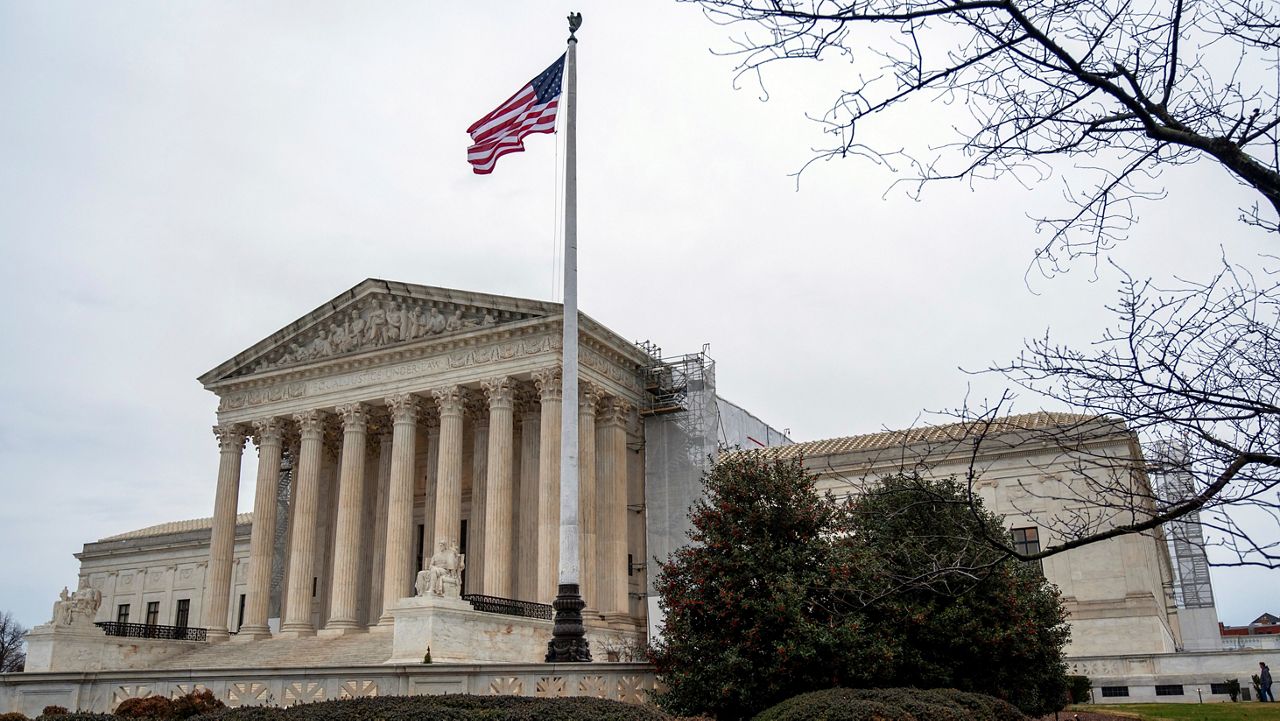The U.S. Supreme Court ruled Monday that Donald Trump can remain on the Colorado ballot, ending a monthslong battle over states' efforts to declare him ineligible over his role in the Jan. 6, 2021, attack on the U.S. Capitol.
The nine justices on the high court unanimously overturned the Colorado Supreme Court's decision, which sought to disqualify Trump over the "insurrection clause" of the U.S. Constitution's 14th Amendment, which bars anyone who "engaged in insurrection" from holding office. This was the first case before the high court that tested Section 3 of the 14th Amendment, a Civil War-era provision that sought to prevent former Confederates from running for office.
The high court wrote in its unanimous decision that states do not have the power to unilaterally ban individuals from holding federal office, determining that authority can only Congress holds that authority.
"We conclude that States may disqualify persons holding or attempting to hold state office," the unanimous opinion of the court reads. "But States have no power under the Constitution to enforce Section 3 with respect to federal offices, especially the Presidency."
"Because the Constitution makes Congress, rather than the States, responsible for enforcing Section 3 against federal officeholders and candidates, we reverse," they later added.
The high court did not wade into the question of whether or not Trump engaged in an insurrection on Jan. 6.
The decision is a major victory for Trump, the Republican presidential frontrunner, ahead of Super Tuesday, when more than a dozen states hold their primary contests, accounting for roughly a third of the delegates needed to clinch the nomination. Colorado is one of the states holding its primary on Tuesday.
It will also take the wind out of the sails of other states that sought to remove Trump from the ballot, including Maine and Illinois, which did so following Colorado's decision.
In an all-caps post on his social media platform, Trump hailed the ruling as a "BIG WIN FOR AMERICA!!!"
The president of Citizens for Responsibility and Ethics in Washington, a left-leaning nonprofit watchdog that brought the Colorado case, disagreed that it's a win for Trump.
"While the Supreme Court allowed Donald Trump back on the ballot on technical legal grounds, this was in no way a win for Trump," CREW president Noah Bookbinder said in a statement. "The Supreme Court had the opportunity in this case to exonerate Trump, and they chose not to do so."
"Every court–or decision-making body–that has substantively examined the issue has determined that January 6th was an insurrection and that Donald Trump incited it," he continued. "That remains true today. The Supreme Court removed an enforcement mechanism, and in letting Trump back on the ballot, they failed to meet the moment. But it is now clear that Trump led the January 6th insurrection, and it will be up to the American people to ensure accountability."
In a concurring opinion, the liberal justices on the high court -- Sonia Sotomayor, Elena Kagan and Ketanji Brown Jackson -- wrote that while allowing Colorado to remove Trump from the ballot would "create a chaotic state-by-state patchwork, at odds with our Nation’s federalism principles," they added "the majority goes further" by concluding that only Congress can prevent someone from appearing on the ballot.
"In doing so, the majority shuts the door on other potential means of federal enforcement," they wrote. "We cannot join an opinion that decides momentous and difficult issues unnecessarily, and we therefore concur only in the judgment."
In a separate concurring opinion, Justice Amy Coney Barrett, who was appointed to the bench by Trump months before he left office, wrote that she agrees with the unanimous majority ruling: "That principle is sufficient to resolve this case, and I would decide no more than that."
But she criticized the high court for overreaching in declaring that only Congress can determine enforcement of Section 3, writing: "This is not the time to amplify disagreement with stridency."
"The Court has settled a politically charged issue in the volatile season of a Presidential election. Particularly in this circumstance, writings on the Court should turn the national temperature down, not up."
"Our differences are far less important than our unanimity: All nine Justices agree on the outcome of this case," she concluded. "That is the message Americans should take home."
